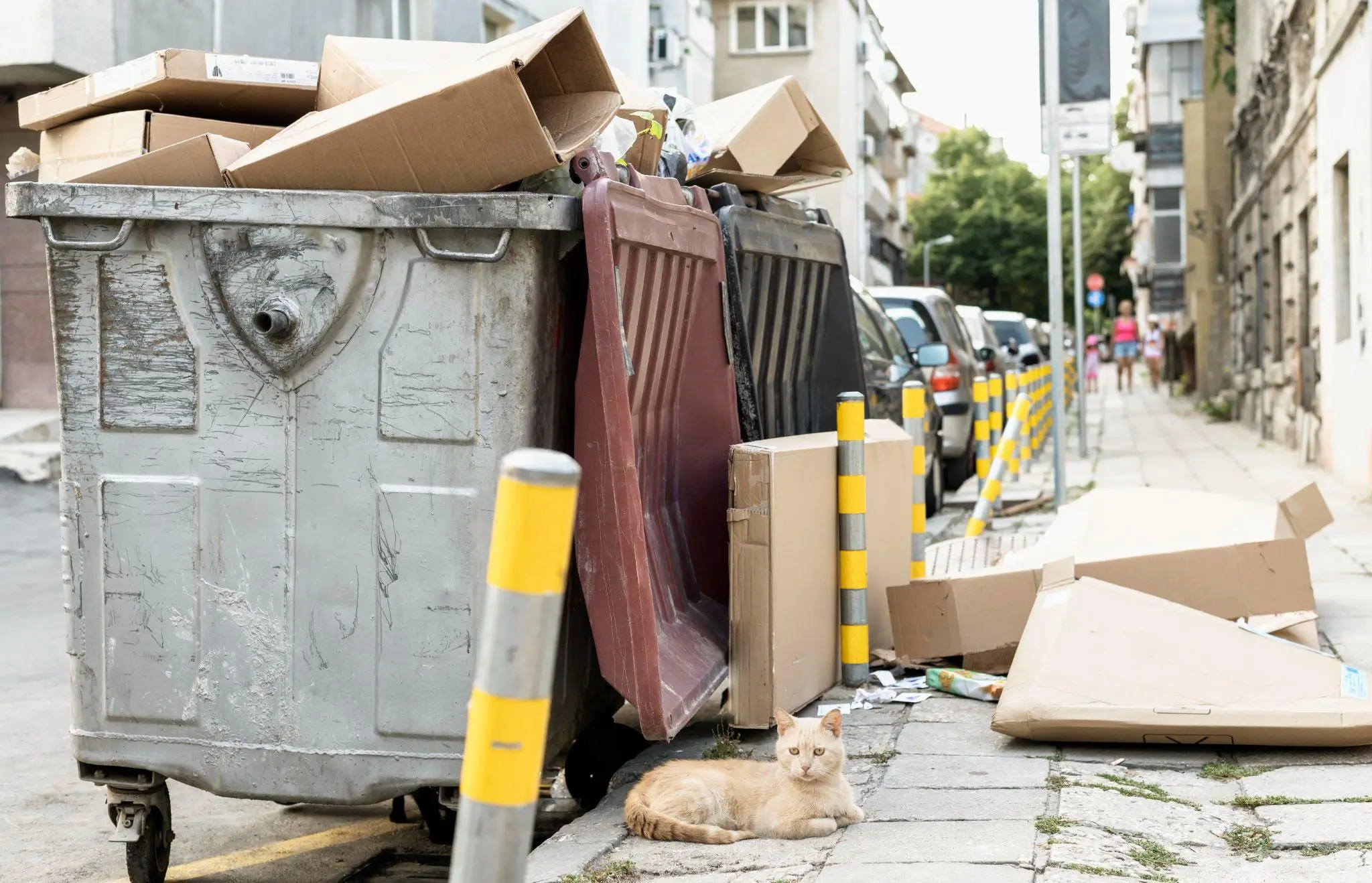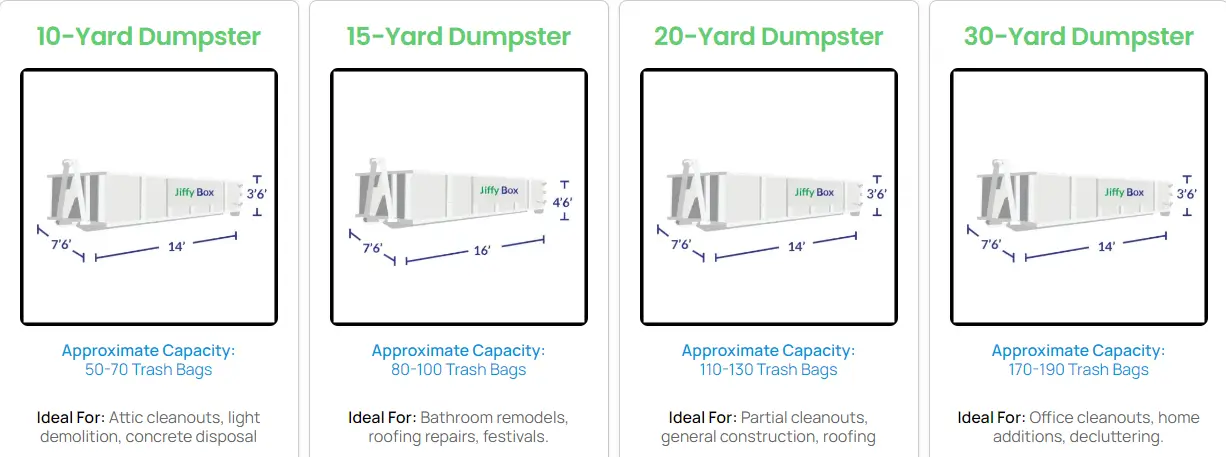Commercial Dumpster vs Roll-Off Dumpster: A Comparison
Dumpsters are crucial for waste management - never really given a second thought until their need sets in. Once you know you need one, choosing between the different types of dumpsters can be overwhelming. In this guide, we’re going to run you through your options with a detailed comparison of dumpster rental services. In the end, you’ll know exactly which type of dumpster you need to get your waste management and/or junk removal on track! Let’s get started.-
Get a Live Quote Now
Connect to a live representative and get a quote in real time for junk removal in your area.Commercial Dumpsters: An Overview
Commercial dumpsters are mostly used for small-scale waste disposal tasks. This small-scale usage means they’re ideal for smaller retail stores and restaurants. Waste is easily contained inside and disposed of because, a commercial dumpster rental flip-on and flip-off lid. The lid helps keep pests out and your garbage in! - Let’s jump into the different types of commercial dumpsters you can choose from.
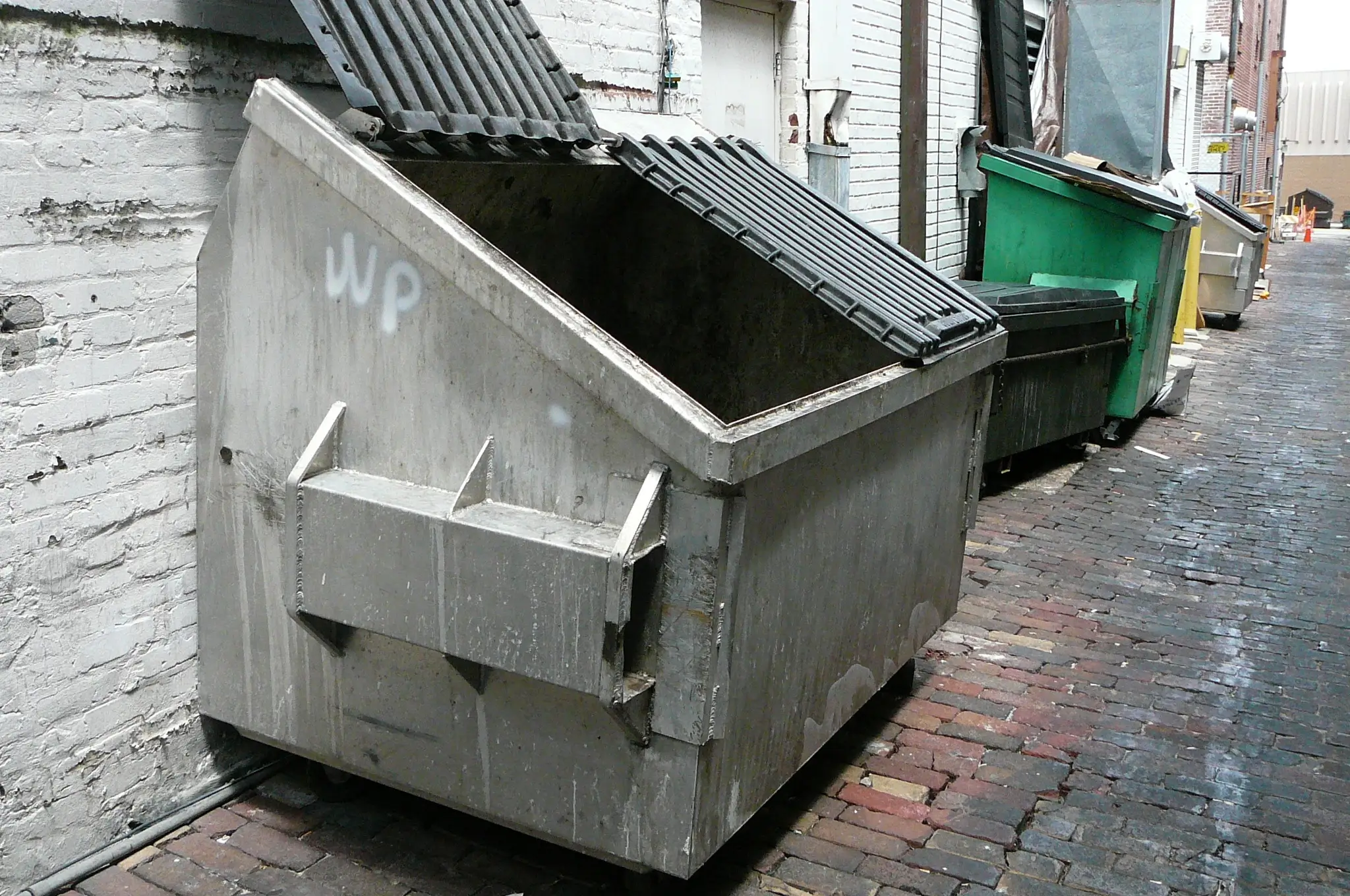
Types of Commercial Dumpsters
Depending on their uses, features, and advantages, there are different types of commercial dumpsters. There two main types are:
1. Front Load Dumpsters
As the name suggests, the front-load dumpsters are those commercial dumpsters that are loaded into a truck from the front. Normally, the front-load dumpsters come with a top that can slant downward so garbage can be dropped inside. The sides of the container are designed in a way that enables a dump truck to lift the dumpster overhead by inserting its prongs. Due to their convenience and a slanted front, front-load dumpsters are commonly used for the collection of daily waste. You want to choose a front-load if your space allows for a truck to drive into the front side of your dumpster - making waste-pick up easily accessible.
2. Rear Load Dumpsters
While the front-load dumpsters have a slanted front, rear-load dumpsters come with a slanted back. They also have extending poles, and a hinge and winch system is used to dump the garbage into the dump truck. In the case of rear-load dumpsters, the truck has to manually hook onto them and pull them up in order for the garbage to fall in. Although dumping waste into rear-load dumpsters is a little difficult as compared to front-load dumpsters, they have an advantage when it comes to the amount of garbage they can hold. They are also a preferred choice for narrow alleys and spaces because of the taller design.
Size Options in Commercial Dumpsters
There are different size variants in commercial dumpsters to accommodate different amounts of waste. Too big, and you’ll be spending more than you need - too small, and you’ll likely have to pay for another delivery and waste pick up! Carefully analyzing the amount of junk you’ll be tossing out can save you both time and money!
2-Yard Dumpsters
Smallest of all the standard sizes, 2-yard dumpsters have a volume of 2 cubic yards. Normally, small-scale businesses, such as restaurants with less than 100 customers per day or offices with no more than 20 employees, use this size of commercial dumpsters. Because of their smaller size, you can easily place 2-yard dumpsters on small-size properties as well.
4-Yard Dumpsters
Medium-sized businesses tend to use 4-yard dumpsters which are double in size compared to the 2-yard dumpsters. These businesses may include rental properties having eight or fewer units or companies with up to 100 employees. Other businesses that can use 4-yard dumpsters are entertainment centers, medium sized retailers, and government offices that occupy a space of less than 5,000 feet.
6-Yard Dumpsters
These dumpsters are 6 feet in height and 6 feet wide. They can accommodate more volume of garbage and are suitable for offices occupying up to 15,000 square feet of space, retail shops with a space of up to 10,000 square feet, and schools. You will usually find the 6-yard dumpsters in enclosed areas of businesses or offices. This area is mostly separated from both the service entrances and the parking lot.
8-Yard Dumpsters
The largest standard size available in commercial dumpsters is 8-yard. 8-yard dumpsters are suitable for big hotels, universities, and apartment complexes. These dumpsters are also preferred by retailers, with up to 25,000 square feet of occupied space and offices having up to 500 employees. Large manufacturing facilities and shipping centers also use this size of commercial dumpsters.
How Much Commercial Dumpsters Cost
There are different factors that determine the cost of renting a commercial dumpster. These factors include the following:
- Location: Before providing a quote, the first thing dumpster rental services ask for is your location. Remote locations will cost more as compared to someone who is in an area closer to the dumpster rental service. The location helps the dumpster rental services determine labor costs, load disposal fees, and recycling regulations of your area.
- Volume: Another factor that affects the cost of renting a commercial dumpster is the volume of garbage your office or facility produces. If you produce large amounts of garbage, it will need a bigger dumpster, and the price will increase because of higher disposal costs.
- Pick-up Schedule: The frequency of garbage pickup can increase or decrease the cost of renting a commercial dumpster. Normally, dumpster rental services offer dumpster pickup throughout the week and let you choose the pickup schedule that suits you best.
Rental Costs
A commercial dumpster service can range from $90 to $350+. The time span you choose to keep the container will also have an affect on the total amount. The exact cost depends on location, the type of junk or trash you produce, the frequency of pickups you require, and the container size. Smaller container sizes will come with less monthly rental costs than large-sized containers. For example, the national average dumpster cost of a 2-yard commercial dumpster is $100-$200. Whereas, a 6-yard dumpster will cost anywhere between $200 and $300, generally.
Additional Fees
Apart from the monthly rental cost, you may also have to pay additional fees for the dumpster. These fees may come from various factors, such as special pickup schedules, lock bars on your dumpster, the type of garbage you produce, and whether or not your dumpster has wheels. For example, if you produce liquid waste then that may cost more as compared to dry waste. Similarly, if you want your dumpster to have wheels to make it mobile then that will also come with additional monthly costs. At Jiffy Junk, we pride ourselves on transparency - any costs/fees are communicated up front - no hidden fees in Jiffy Junk dumpster rental services!
Regulations for Commercial Dumpsters
Commercial dumpsters have different regulations, usually depending on the location. Regulations for commercial dumpsters related to hygiene, environment, placement, overfilling, weight limits, and permit requirements are common.
Placement Regulations
These regulations relate to where you should and shouldn’t place the dumpster. Placement regulations generally require placing the dumpster in a place where the garbage truck can easily deliver and pick it up without obstructing walkways, roads, or adjacent properties.
Material Restrictions
Dumpster rental services prohibit customers from putting certain prohibited items in the dumpster. These items usually include chemicals, electronics, hazardous substances, tires, flammable materials, and batteries. If you dump any of the prohibited materials in your dumpster then you may have to pay penalties or additional fees.
Permit Requirements
In some localities, you need a permit from your local authority to place a dumpster on public property or roadway. Always check with your local waste management department or municipality before renting a dumpster.
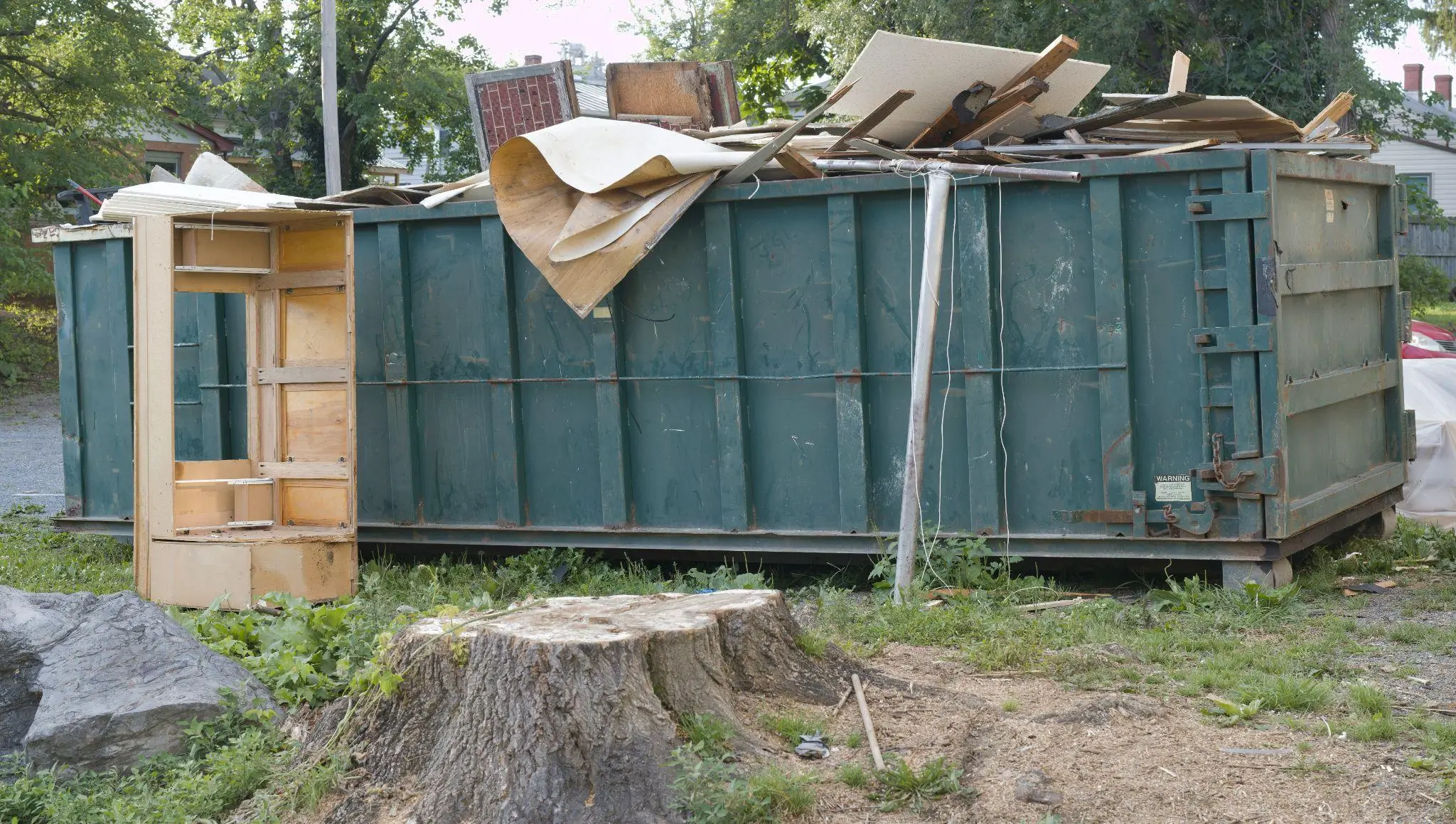
Roll-Off Dumpsters: An Overview
Roll-off dumpsters are quite different from commercial dumpsters in their size and appearance. They have an open top, large in size, and are primarily used in large-scale projects. These big projects may include the construction of a building, estate cleanout services, or a renovation of a big office structure. Dumpster rental services offer roll-off dumpsters as well, especially for temporary projects.
Types of Roll-Off Dumpsters
There are different types of roll-off dumpsters. Each of these types meets different requirements. Following are the two most common:
1. Standard Roll-Off Dumpsters
The standard roll-off dumpsters are meant to handle general waste. The type of waste collected by standard roll-off dumpsters may include construction waste or heavy concrete debris from a house renovation project.
2. Compactor Roll-Off Dumpsters
The major difference between standard roll-off dumpsters and compactor roll-off dumpsters is that the latter have a compaction system fit into them. This compaction mechanism enables the compression of waste, which allows these dumpsters to accommodate the maximum amount of garbage. As compactor roll-off dumpsters can contain more waste than standard roll-off dumpsters, they are suitable for large-scale construction or cleanout projects that produce high volumes of waste.
Sizes of Roll-off Dumpsters
Like commercial dumpsters, roll-off dumpsters also come in a number of different sizes to cater to different project requirements. Following are the four common sizes of roll-off dumpsters.
10-Yard Dumpsters
This is the smallest size in the roll-off dumpsters category. 10-yard dumpsters are best suited for small-scale projects, such as construction, renovation, and landscaping. These dumpsters can normally handle up to 4,000 to 6,000 lbs of weight.
20-Yard Dumpsters
The next type of roll-off dumpsters, according to size, are 20-yard dumpsters. With a volume capacity of 20 cubic yards, these roll-off dumpsters are suitable for small to medium projects, such as garage cleanouts, and can hold a load of about 10 pickup trucks.
30-Yard Dumpsters
When it comes to large residential renovations, commercial construction, or cleanout projects, 30-yard dumpsters have a better utilization. These dumpsters are normally 20 feet long, 6 feet tall, and 8 feet wide and can handle 7,000 to 10,000 lbs of weight.
40-Yard Dumpsters
This is the largest of the sizes roll-off dumpsters come in. With a volume of 40 cubic yards, these large-sized roll-off dumpsters are preferred for large-scale construction projects, including commercial buildings and large houses. 40-yard dumpsters can hold between 10,000 and 12,000 lbs of weight, which is equivalent to about 20 pickup trucks.
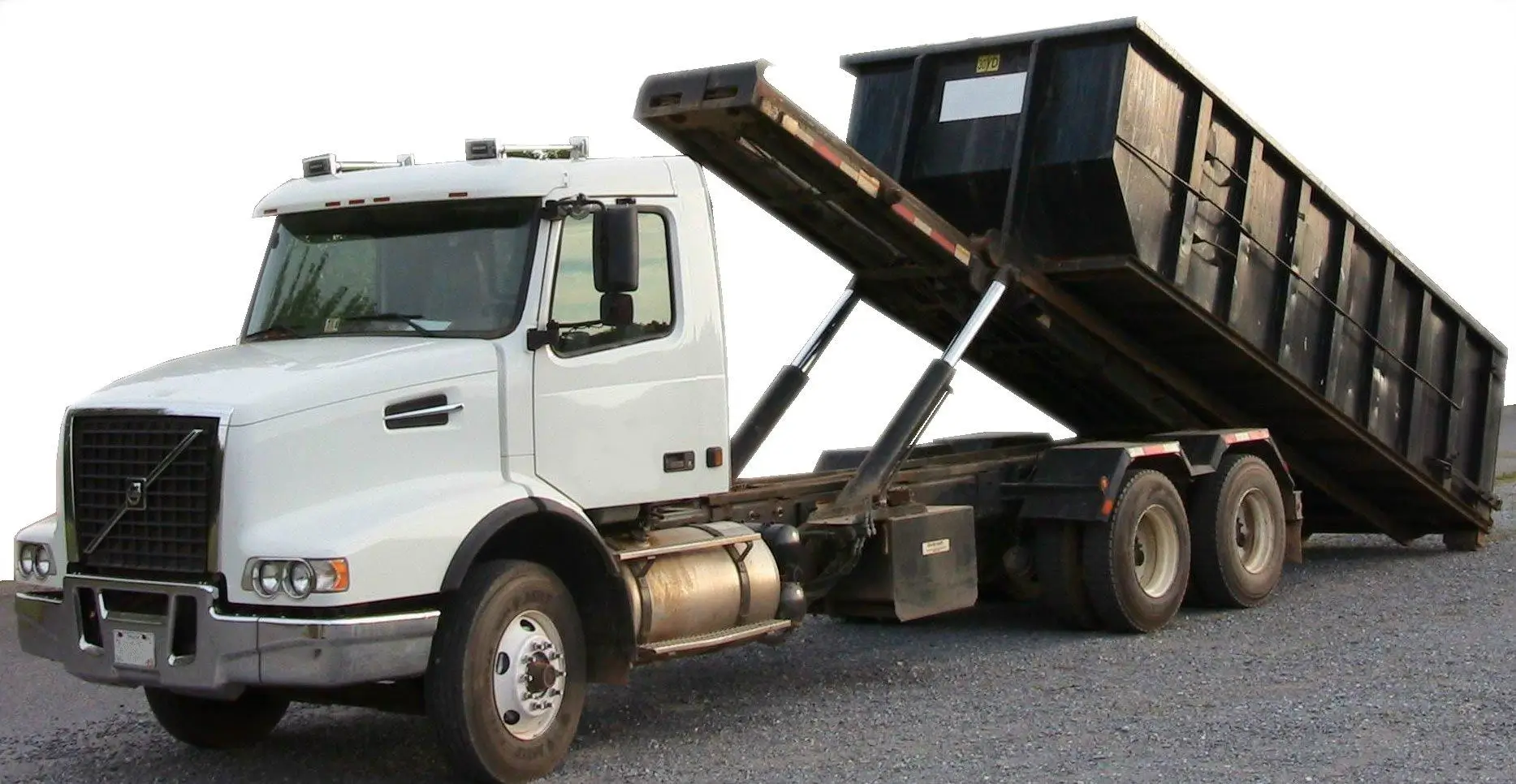
Cost of Roll-Off Dumpsters
As in the case of commercial dumpsters, the rental costs of roll-off dumpsters also depend on different factors such as location, weight, and rental periods. Here is a brief overview of the factors that influence the cost of roll-off dumpsters.
- Location: How many miles a truck needs to travel to deliver your dumpster plays into the ultimate cost.Location also determines demand, for example, dumpster rentals may cost less in the Midwest as compared to the East Coast or West Coast.
- Debris Type: Another factor affecting the cost of renting a roll-off dumpster is the type of debris your project is producing. Heavy debris, such as brick, gravel, asphalt, or concrete will cost more compared to yard waste such bushes and shrubs.
- Size: As mentioned above for commercial dumpsters, the size of your roll-off dumpster will also affect the overall cost of your project.
- Weight: Weight is another factor that determines the cost of renting a roll-off dumpster. The fee charged for landfill disposal depends on the weight of the waste material. Therefore, in the case of heavy material, such as construction waste, the cost will be more, and light waste material such as yard waste or grass will cost you less in waste disposal fees.
Rental Costs
The rental charges for roll-off dumpsters vary from area to area. But, the average dumpster rental cost in the United States is around $650 per week. As far as pricing is concerned, roll-off dumpsters may cost anywhere between $400 and $800. This price range depends on several factors we mentioned above. For example, it will cost around $500 per week to rent a 10-yard roll-off dumpster and $650+ for a 20-yard dumpster.
Additional Fees
Renting roll-off dumpsters may come with some additional fees as well, such as overage fees and overloading fees. Therefore, go through the dumping instructions very carefully to avoid them. For example, landfills don’t accept items like paint and batteries for environmental reasons. So, if you put such items in your dumpster, you may be fined. Similarly, a dumpster weighing more than the allowed limit will result in overage charges which may amount to $50 to $250 per ton, depending upon the waste material and company.
Regulations for Roll-Off Dumpsters
Another important thing to keep in mind is that you need to follow certain regulations with regard to placement, permits, environmental consciousness, and others.
Placement Regulations
Every municipality, every city, and every state has its own set of regulations that tell you where you can place your roll-off dumpster. These placement regulations commonly depend on dumpster size, location, and the type of waste.
Usage Restrictions
Certain materials, such as chemicals and hazardous waste, are non-disposal as per regulations. Therefore, when renting a roll-off dumpster, get a list of all the prohibited items and fully comply with usage restrictions.
Permit Requirements
Permits from your local authority are needed to place a roll-off dumpster in certain areas, especially public places. These public areas may include streets or sidewalks. So, apply for a permit in advance so your project can start on time.
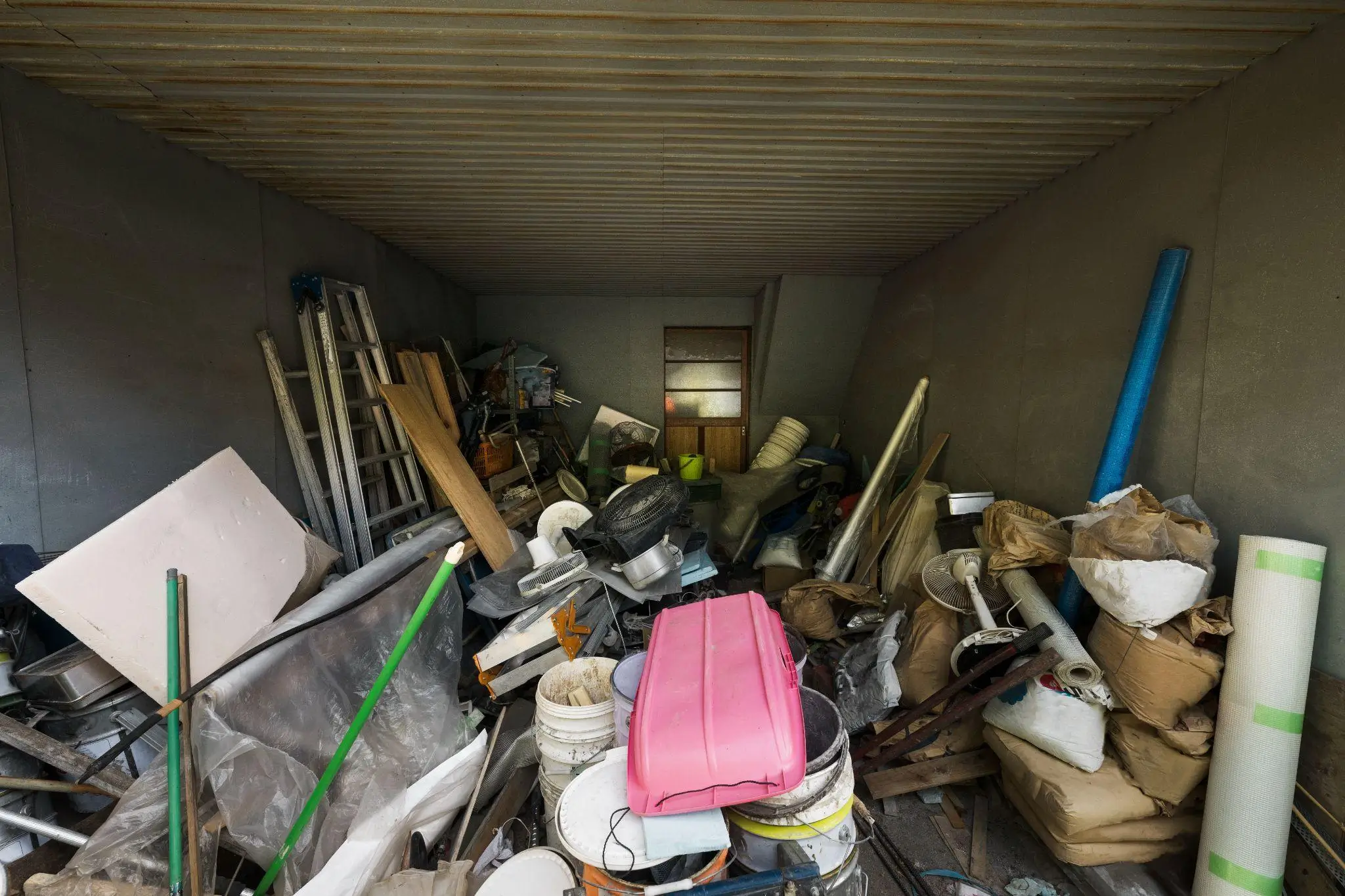
Choosing the Right Dumpster for Your Needs
Armed with all of this information, you likely now understand the importance of choosing the right size of dumpster. Let’s now jump into how you can go about getting the right size for your project:
Waste Volume
It’s almost impossible to accurately measure exactly the amount of junk your project will produce. However, visualizing an approximate figure can help you save money in the long run. Start by making a list of your largest items. For example, 2 mattresses, 4 queen sized bed frames, and 4 medium sized cedar trees would be on this list. Next, consider that each room of junk would take up approximately half of a 10-Yard roll-off dumpster. Once you have this down, go up one size - don’t let surprises get in the way of your project, preparation is key!
Project Duration
Another factor that will help you choose the right dumpster for your project is its duration. Depending on how short or long your project will last, the dumpster preference will change. For example, you can easily complete short-term projects with smaller dumpsters. However, if a project is to last for a longer period of time, say a couple of weeks, a large-sized dumpster will suit you better.
Type of Waste
The type of waste your project will produce will also influence the selection of dumpsters. A commercial dumpster might be more suitable for general household waste. Whereas in the case of heavy waste produced by large-scale construction projects, a 40-yard roll-off dumpster will meet the requirements better.Similarly, in the case of any hazardous waste, only a specialized dumper will handle it.
Logistics and Planning for Dumpster Rentals
While it may seem simple, renting a commercial or roll-off dumpster requires quite a bit of planning beforehand. Here are a few things you should work out before renting a dumpster for your project.
Scheduling Delivery and Pick-Up
After you have decided on a date to start your project, make a proper schedule of how when you want the dumpster to arrive and when the dumpster will need to be picked up. The scheduling will save you from extra rental costs and allow you to stay ahead of the timeline. Call your dumpster rental service provider and discuss delivery timing, rental duration, and pickup to avoid additional fees.
Properly Managing the Dumpster
When scheduling is done, it is time to prepare the ground where you intend to place the dumpster. The ground should be hard enough to support the weight of the dumpster, such as a home driveway. Similarly, the dumpster should be placed close to the project site. Otherwise, you will need additional time, effort, and money to transfer the waste from your project’s location to the dumpster. Avoid overfilling as it may result in additional fees and safety risks.
Environmental and Safety Considerations
Often, we overlook environmental and safety considerations when renting a dumpster. Remember that a dumpster can impact the environment in a number of ways. For example, hazardous waste can cause land, air, and water pollution. If you need additional pickups, it will result in more greenhouse emissions and increase the carbon footprint of your project.
Apart from the environment, safety should also be one of the major considerations. You should properly maintain the site and use protective gear where required.
Jiffy Junk: Your Go-to Dumpster Rental Partner
Jiffy Junk provides several dumpster rental services to handle different waste disposal requirements. Customer satisfaction is our top priority from start to finish of all projects, both big and small. Our clients appreciate our commitment to offering competitive prices, flexible scheduling, and proper disposal of waste according to local and national rules and laws. We’re also eco-friendly by recycling and donating junk whenever possible to limit the amount of junk that ends up at the landfill.
Learning Recap
In this article, we did a detailed comparison of commercial and roll-off dumpsters based on different criteria. We also learned the importance of choosing the right dumpster and proper planning for dumpster rental. Lastly, we talked about how Jiffy Junk can take care of disposing of the waste. We offer personalized dumpster rental services and junk removal services. Raad more on our blog ‘How Do Junk Removal Services Work’.
Final Thoughts
You always want to choose the right dumpster for your project. By considering the difference between commercial and-off dumpsters, you can decide which rental option most suits your needs. Get in touch with our junk removal experts - we’re always happy to help!
Robust Service
Interested in Getting Started?
Have a big cleanout job that needs to be done right away? Contact us today. We'll get rid of your junk in a jiffy!
Fast & Reliable
What Our Customers Are Saying
Thousands of satisfied customers across America have shared their Jiffy Junk Experience.
